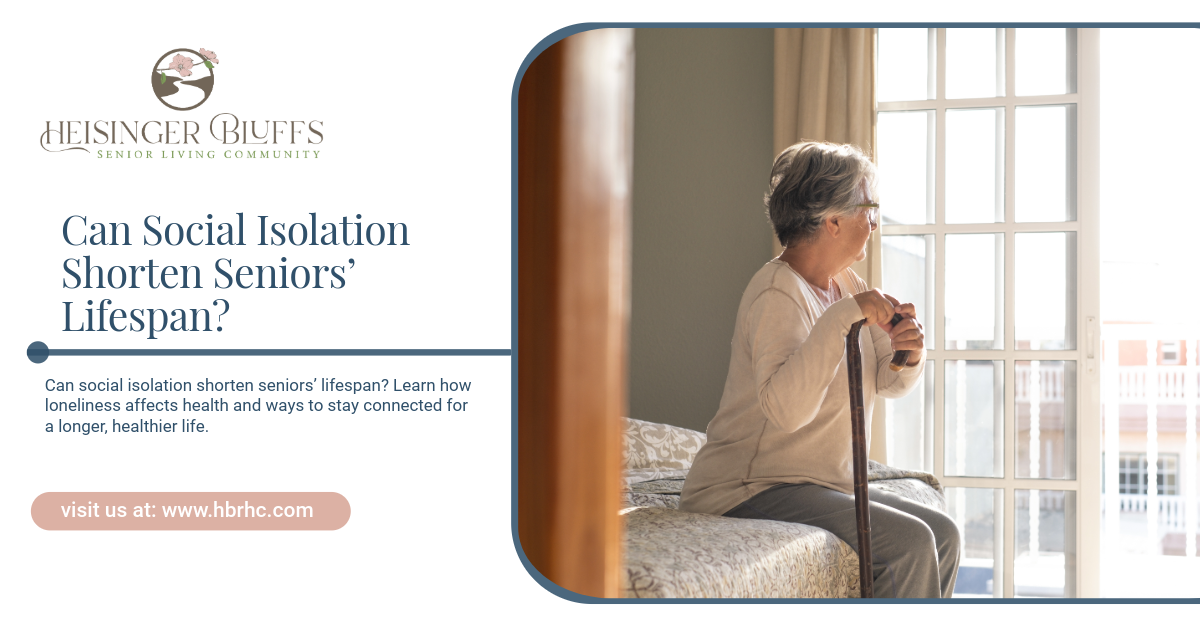Top Health Concerns for Seniors and How to Manage Them Wisely

Key Highlights
- Health concerns such as chronic conditions, memory loss, diabetes, and arthritis become more prevalent during the golden years of life.
- Understanding the impact of physical changes and chronic illnesses like heart disease and high blood pressure helps ensure better care.
- Adopting strategies for managing diabetes, hypertension, and cardiovascular issues can reduce complications significantly.
- Mental health plays an essential role in aging well, especially by addressing loneliness and depression.
- Preventive measures, including health screenings and vaccinations, are key to staying ahead of age-related risks.
As people move into their golden years, it is important to focus on staying healthy. Older adults often have to deal with new health concerns. With age, things such as chronic conditions, trouble moving around, memory loss, and hearing loss can become more common. These problems are normal, but with the right help and by taking action early, they can be managed. This helps you stay healthy and enjoy life more. It is good to know about these health risks early on. Taking steps at the right time can stop problems from getting worse and help keep your quality of life up. Now, let’s look at the main health concerns older adults face and the smart ways to handle them.
Understanding Common Health Concerns for Seniors
As people get older, their bodies go through changes. This is normal, but it can lead to more health problems for older adults. Many of them get long-term health issues, like heart disease or diabetes. There are also problems with moving around, or changes in the way they think, such as cognitive decline.
It is important to notice these health problems early. That way, better plans can be made for handling or stopping them before they get worse. With the right help and care, many of these issues can be made better. This lets older adults stay active and enjoy life as much as they can as they get older.
The Prevalence of Chronic Diseases in Aging Populations
Chronic diseases are a big worry as people get older. Heart disease, high blood pressure, and diabetes are some of the most common problems. Almost all adults who are 60 or older have at least one of these conditions. About 78% of them have two or more. Obesity is also common, with 42% of older adults dealing with it. This makes the chances of getting these illnesses even higher.
Heart disease is the number one cause of death in older adults. It often happens because someone has high cholesterol for a long time or high blood pressure. In the same way, Type 2 diabetes often starts after the age of 45. This can bring tough problems, like kidney failure.
These chronic conditions are all connected. If you take care of one, it may help improve the others, too. To lower risks, it is good to focus on good nutrition, being active, and watching your health closely. This kind of care really helps older adults live better with these chronic conditions and avoid further complications.
Impact of Age-Related Physical Changes on Health
The aging process leads to many physical changes. These changes can affect how we feel and live every day. There is less movement, and bones can get weaker. Arthritis can start. With this, simple activities get harder for people. So, there is a bigger risk of falls and injuries.
Hearing loss is the other big thing that may show up with age. This can make it hard to talk and stay in touch with other people. The inner ear changes as we get older, so it is tough to hear what others say at times. Going out to join social events becomes more difficult, too. Dealing with these physical changes early helps people keep up with mental health, so they do not feel cut off or lonely.
These changes in the body can show up as thinner skin, less muscle, and weaker body systems. This makes the body work slower. The body may not fight illness as well. To deal with these physical changes, seniors should eat balanced food and add light exercise into their days. Walk or swim to keep moving. This can help keep up mobility, ease problems from arthritis, and support a good, healthy life.
Strategies for Managing Chronic Conditions
Taking care of long-term illnesses the right way can help lower the risk of problems in the future and make life better as people get older. With regular checkups, changes the way you live, and changes in what you eat, it gets easier to handle conditions like diabetes and high blood pressure.
Health plans made for the problems that come with chronic illnesses help older people stay well. The next sections give steps you can use to deal with heart disease, high blood pressure, and diabetes. This helps make healthcare focus not just on fixing things but also on stopping problems before they start.
Effective Management of Heart Disease and Hypertension
Taking care of the heart and managing blood pressure is important for staying healthy. Doctors can help, but making changes in your daily life also really matters. For example, high blood pressure often does not show clear signs at first. It can lead to bad events like a stroke or heart failure. There are some things people can do every day to help keep blood pressure in good shape.
| Condition | Management Strategies |
|---|---|
| Heart Disease | Eat meals that are good for you with low saturated fats. Get moving with exercises that are good for the heart, so the heart muscles stay strong. |
| High Blood Pressure | Use less salt, see your doctor for check-ups, and do not drink alcohol. This can help keep your blood pressure steady. |
Taking care of heart health is not just something you do at the hospital. Older people can add simple fitness tasks, take medicine when needed, and check things like weight and pulse rate on their own. If you keep up with these ways of looking after your health, the heart stays stronger even as you get older.
Diabetes Control and Lifestyle Modification
Taking care of diabetes means you need good habits in what you eat and staying active. When you get older and live with this health issue, making small changes to your food like eating less sugar and fewer calories can help a lot.
Eating a Mediterranean or a balanced meal plan is good. It should have plenty of leafy greens, whole grains, and lean protein. These foods help keep your blood sugar steady. Doing physical activity, like walking or yoga, also helps. It can make your body use insulin better. It may also help you slowly lose some weight if you are in the stage before you get diabetes.
It is helpful to keep checking your blood sugar levels often. You can use tools like glucometers to do this. Checking often helps you make better picks for what foods to eat, right when you need to. Making changes to how you live, along with talking to your doctor, can give you more control over your own life and lower the risks of having more problems or complications with diabetes.
Importance of Mental Health for Seniors
Good mental health matters as much as the way your body feels, especially for older adults. It is easy to miss signs of feeling down, changes in memory, and loneliness. But these can hurt the way people live each day.
Getting older in a good way means you need to notice problems like these. At the same time, it helps to build strong bonds with people and be tough when things get hard. The next parts talk more about how to see signs of feeling down and ways to fight loneliness. This is important to help seniors feel good overall.
Identifying and Managing Symptoms of Depression
Depression happens often, but it should not be something people just expect when they get older. When someone feels sad for a long time, gets tired suddenly, or stops enjoying things they once loved, it is not normal. These can be signs that the person needs help.
The first step to help with depression is to talk openly. Speak with your family or your healthcare provider about how you feel. This is the start to getting the right support you need. There are many ways to treat it. People can go to therapy or take medicine from a doctor if needed.
Having a good support group makes people twice as strong against stress. Doing some simple physical activity, like taking a walk outside, helps your body make good chemicals. This lifts your mood in a natural way. Also, eating food with nutrients balances the brain’s chemicals. This helps bring down the feelings that come with depression, especially in older age.
Combating Loneliness and Social Isolation
Feelings of loneliness are common, and these can hurt mental health over time. Older adults who do not have regular social time with others may see their self-esteem drop and may be more likely to feel anxiety.
Staying in touch with friends or spending time on hobbies helps lessen loneliness. There are good ways for people to gather, like joining a book club or music class. These let older adults get back to things they like and give them the chance to make new friends.
There are also helpful tech tools, like video calls, that let people keep talking to family and friends. These tools are very useful if getting around is not easy because of mobility issues. When loved ones visit, it lifts spirits and helps everyone feel that they belong. Keeping up good mental health means being active and joining in when you can.
Preventive Measures and Regular Health Screenings
Taking steps early is the best way to stop health problems as you get older. When you go for check-ups on time and get early tests, you and your doctor can find risks before they turn into big complications later.
Getting regular vaccines and special health tests helps people in their golden years stay strong and ready to fight off sickness. Let’s look at the main screenings and important vaccines that older people should get. These can really help protect you and keep you healthy as you enjoy your golden years.
Recommended Screenings for Seniors
Routine health screenings can help find health problems early. Seniors need to make checks like cholesterol tests a top concern. These checks help find high blood pressure or heart disease so they can be taken care of fast.
Bone density tests are also very important. They help stop breaks in bones that often come from osteoporosis. At the same time, cognitive tests find problems like memory loss or cognitive decline. These tests can help give a fast answer to issues tied to dementia.
Screenings for cancer, like tests for colon cancer or breast cancer, should have a place on the senior’s health to-do list. Each check and every step taken helps people keep good health as they get older. This means people are more likely to stay healthy for a long time.
Vaccinations: Flu, Pneumonia, and Shingles
Vaccines help older adults stay safe from diseases that can be stopped before they start. Important vaccines include:
- Flu Vaccine: It helps protect him or her from getting sick with the flu and stops problems that come from it.
- Pneumococcal Vaccine: This one lowers the chance of a person getting bad pneumonia and other complications.
- Shingles Vaccine: This keeps people from getting a painful rash and helps with the nerve pain after other issues.
Vaccines are a simple and good way to care for the health of older adults. If he or she stays up to date on all shots, the body gets stronger, and there will be fewer health setbacks or complications.
Final Thoughts
As we have seen, managing health concerns in seniors is very important to help them have a good life. Problems like long-term illness, mental health, and the need for care before sickness starts can be big worries. These things need early and smart action. When you understand what seniors go through, and use ways to help with their care, seniors can live better and happier in their golden years. It is also important to support regular health checks, build up mental health, and help seniors stay social. These are some simple ways that we can make things better for older people. Remember, you don't have to go through this alone.
At Heisinger Bluffs, we are here to give help and support so that seniors can do well as they get older. If you want to know what we can do for you, feel free to contact us today!
Frequently Asked Questions
What are the most important screenings for older adults to get regularly?
Screenings like cholesterol checks, blood pressure monitoring, diabetes tests, and bone density scans are key for staying healthy. Seniors should also have regular cancer screenings (such as colon and breast exams) and cognitive assessments to detect issues early. These tests help catch problems before they become serious.
How can seniors manage chronic conditions like diabetes or high blood pressure?
Managing chronic illnesses means making daily lifestyle changes. This includes eating nutritious meals, staying physically active, keeping up with doctor appointments, and taking medications as prescribed. Regular blood sugar or blood pressure checks at home also help seniors stay in control of their health.
Why are vaccinations important for older adults?
Vaccines protect seniors from serious illnesses like the flu, pneumonia, and shingles—conditions that can lead to complications as people age. Staying up to date with these vaccinations helps boost the immune system and reduces the risk of hospitalization or long-term health problems.
Sources:
- https://www.who.int/news-room/fact-sheets/detail/ageing-and-health
- https://www.ncoa.org/article/the-top-10-most-common-chronic-conditions-in-older-adults/
- https://www.ncbi.nlm.nih.gov/books/NBK532533/
- https://usafacts.org/articles/what-are-the-top-causes-of-death-for-people-65-and-older/
- https://www.nia.nih.gov/health/hearing-and-hearing-loss/hearing-loss-common-problem-older-adults
- https://academic.oup.com/jcem/article-abstract/104/5/1520/5413486?redirectedFrom=fulltext
- https://www.nia.nih.gov/health/mental-and-emotional-health/depression-and-older-adults











